THCA vs Delta 9: Understanding Their Effects and Risk Of Addiction
What are the differences between THCA and Delta 9 THC? This article will outline their effects, benefits, and potential risks. Understanding ‘THCA vs Delta 9’ can help you choose the right cannabis product for your needs, whether for medical or recreational purposes.
Key Takeaways
-
THCA is a non-psychoactive precursor to Delta 9 THC, known for its potential therapeutic benefits without the intoxicating effects.
-
Delta 9 THC is the primary psychoactive compound in cannabis, providing euphoric effects and has established medical applications, especially in pain relief and nausea management.
-
Understanding the differences in effects, consumption methods, and legal status of THCA and Delta 9 THC is essential for informed cannabis use and choosing products that align with user preferences.
THCA vs Delta 9: Understanding Their Effects and Benefits
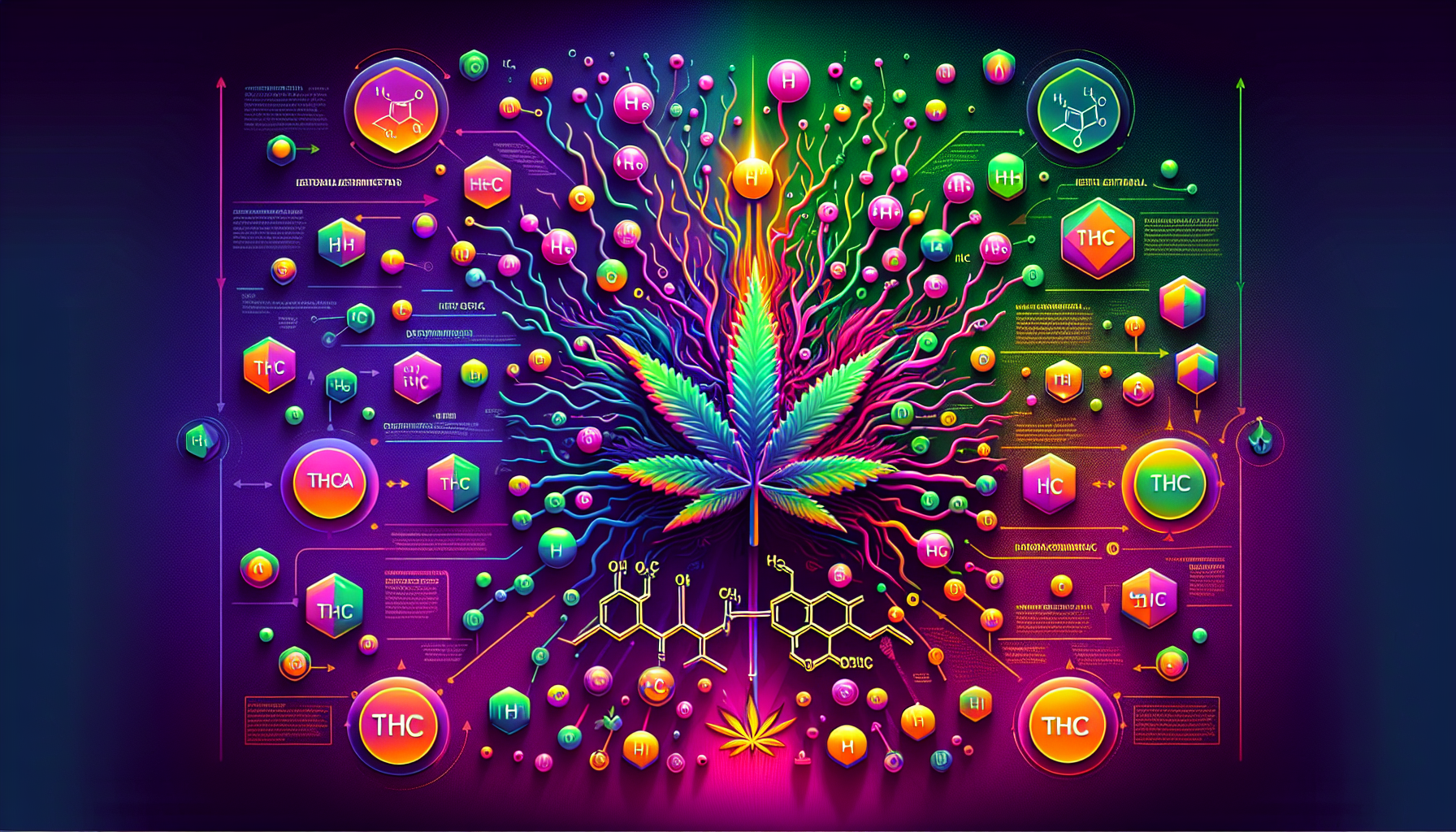
Cannabinoids, like THCA and Delta 9 THC, are essential compounds in cannabis that influence its effects and therapeutic potential. Recognizing the differences between THCA and Delta 9 THC benefits both medical and recreational cannabis users.
THCA, or tetrahydrocannabinolic acid, is the non-psychoactive precursor to Delta 9 THC and does not induce a ‘high’ unless it undergoes decarboxylation. This conversion occurs through heating, which is common in smoking or cooking cannabis.
The effects and benefits of these cannabinoids are varied. THCA is known for its potential therapeutic benefits without the intoxicating effects, making it appealing for those seeking relief without the ‘high.’ On the other hand, Delta 9 THC is celebrated for its psychoactive properties, providing euphoria and relaxation, which is why it’s popular in both medical and recreational use. The different ways these compounds interact with cannabinoid receptors in the human body explain why their effects are so distinct.
This article will examine the chemistry behind these compounds, their specific benefits, and how they compare. Whether you’re drawn to THCA-rich hemp products or the potent THC of Delta 9, knowing these differences aids in making informed cannabis choices.
Introduction
Cannabis enthusiasts and those seeking therapeutic benefits must grasp the differences between THCA and Delta 9 THC. Cannabis use is broadly categorized into therapeutic and recreational purposes. This distinction is not just academic; it affects how users experience cannabis and what they can legally use.
Throughout this blog post, we will cover key topics such as the effects, legality, safe use, and health implications of Delta 9 THC and THCA. This guide aims to help users navigate the complex landscape of cannabis products, ensuring choices that best suit their needs and preferences.
What is THCA?
THCA, or tetrahydrocannabinolic acid, is one of many cannabinoids found in the cannabis plant. Unlike Delta 9 THC, THCA is a non-psychoactive precursor that does not induce a ‘high’ unless it undergoes decarboxylation. This means that in its raw form, THCA doesn’t interact with the brain’s receptors to produce psychoactive effects. THCA is abundant in raw cannabis and is often consumed for its potential therapeutic benefits without the intoxicating effects associated with Delta 9 THC.
Insights into THCA’s chemistry and therapeutic benefits highlight its role in the cannabis world. Consuming raw cannabis, THCA flower, or other THCA products requires understanding how THCA converts to Delta 9 THC for informed decisions.
Chemistry of THCA
The chemistry of THCA is fascinating and pivotal in understanding its non-psychoactive nature. THCA features an extra carboxyl group that distinguishes it from Delta 9 THC, rendering it non-psychoactive until it undergoes decarboxylation. This structural difference means that THCA does not interact with the brain’s receptors in its natural form, preventing it from producing a high.
Decarboxylation converts THCA into Delta 9 THC, activating the compound. This transformation occurs rapidly when cannabis is heated, such as during smoking or cooking. The extra carboxyl group is removed, resulting in Delta 9 THC, which then exhibits psychoactive effects. For those seeking the intoxicating effects of cannabis, this conversion of THCA into Delta 9 THC is crucial.
In its raw form, THCA does not produce a high because it has not undergone decarboxylation. This makes raw cannabis rich in THCA appealing for those seeking health benefits without the psychoactive effects. Methods such as juicing raw cannabis or using THCA-rich hemp products can provide these benefits without converting THCA to Delta 9 THC.
Consumers and industry professionals must understand the chemical transformation from THCA to Delta 9 THC. It highlights why THCA is favored for therapeutic purposes while Delta 9 THC is often sought for its recreational benefits.
Therapeutic Benefits of THCA
THCA’s potential therapeutic benefits are garnering significant attention in the medical community. Early research indicates that THCA might have anti-inflammatory properties, beneficial for autoimmune disorders like arthritis and lupus. These anti-inflammatory effects make THCA an attractive option for patients seeking relief without the psychoactive impacts of Delta 9 THC.
Moreover, THCA is noted for its potential neuroprotective properties, which may aid in conditions like Alzheimer’s and Parkinson’s. Ongoing research is crucial to fully understand and validate THCA’s therapeutic effects. The absence of psychoactive properties makes THCA particularly appealing to those who need medicinal relief without the intoxicating effects commonly associated with THC.
In addition to its anti-inflammatory and neuroprotective properties, THCA is being explored for other therapeutic applications. The progress of research could significantly impact the medicinal value of THCA, stressing the need for comprehensive studies.
What is Delta 9 THC?
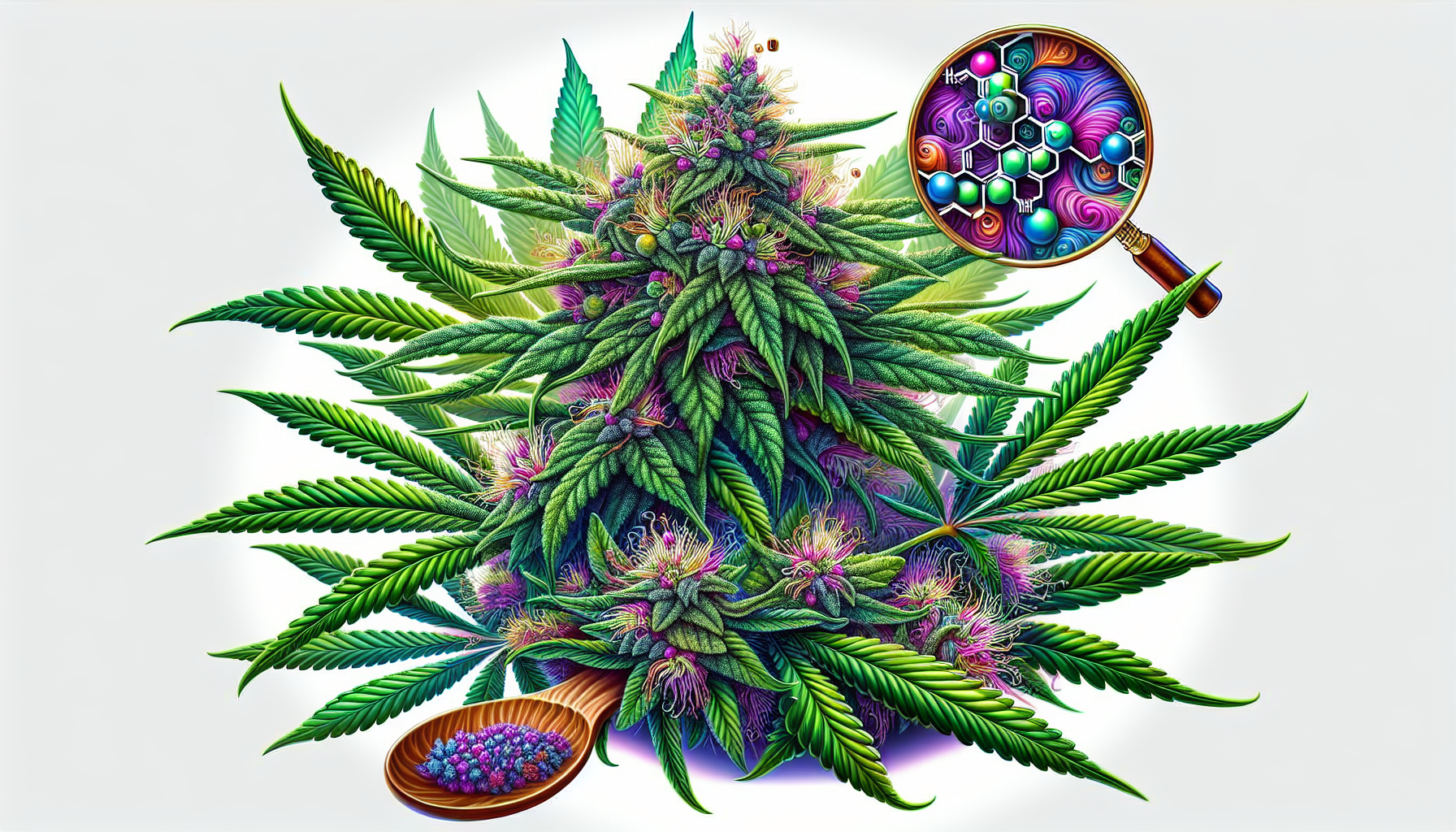
Delta 9 THC is the primary psychoactive compound in the cannabis plant, responsible for the ‘high’ sensation that users experience. It is formed from THCA through drying, curing, and heating cannabis. This transformation dramatically alters the compound’s effects, turning non-psychoactive THCA into intoxicating Delta 9 THC.
Delta 9 THC, derived from hemp and marijuana plants, is popular in medical and recreational contexts due to its psychoactive properties. Common consumption methods include smoking, vaping, and ingesting edibles, each offering different experiences and onset times for its effects.
Psychoactive Effects of Delta 9 THC
Delta 9 THC induces a range of psychoactive effects, including euphoria, relaxation, and altered sensory perception. These sensations, commonly referred to as the ‘Delta 9 high,’ are what draw many users to this compound for both medical and recreational use. Factors such as dosage, individual tolerance, and method of consumption can influence these effects.
When Delta 9 THC binds to brain receptors, it triggers these psychoactive properties, leading to feelings of euphoria and uplifted mood. The intensity of these effects is often determined by the concentration of Delta 9 THC in the product, along with the user’s tolerance and how the product is consumed. For instance, smoking or vaping typically leads to a faster onset of effects compared to edibles, which may take longer to produce the desired effects.
Users seeking specific outcomes from their cannabis experience must understand these factors. Whether aiming for relaxation, mind upliftment, or sensory enhancement, the way Delta 9 THC is consumed plays a significant role in achieving the desired effects.
Medical Applications of Delta 9 THC
Delta 9 THC has several approved medical uses, including pain relief, treatment of nausea, and management of psychological disorders. Medications such as dronabinol and nabilone, which contain Delta 9 THC, are effective for treating severe nausea, particularly in chemotherapy patients. These FDA-approved medications highlight the therapeutic potential of Delta 9 THC in addressing specific medical conditions.
Research is ongoing to explore other medical applications of Delta 9 THC, such as its effectiveness in managing chronic pain and certain neurological disorders. Patients often report relief from chronic pain and improved appetite with Delta 9 THC, which interacts with the endocannabinoid system to regulate these symptoms.
The therapeutic benefits of Delta 9 THC extend beyond these conditions, with ongoing studies aiming to uncover new applications. The expanding cannabis industry keeps Delta 9 THC’s medical potential a significant area of interest, promising new treatments and improved quality of life.
Comparing THCA and Delta 9 THC
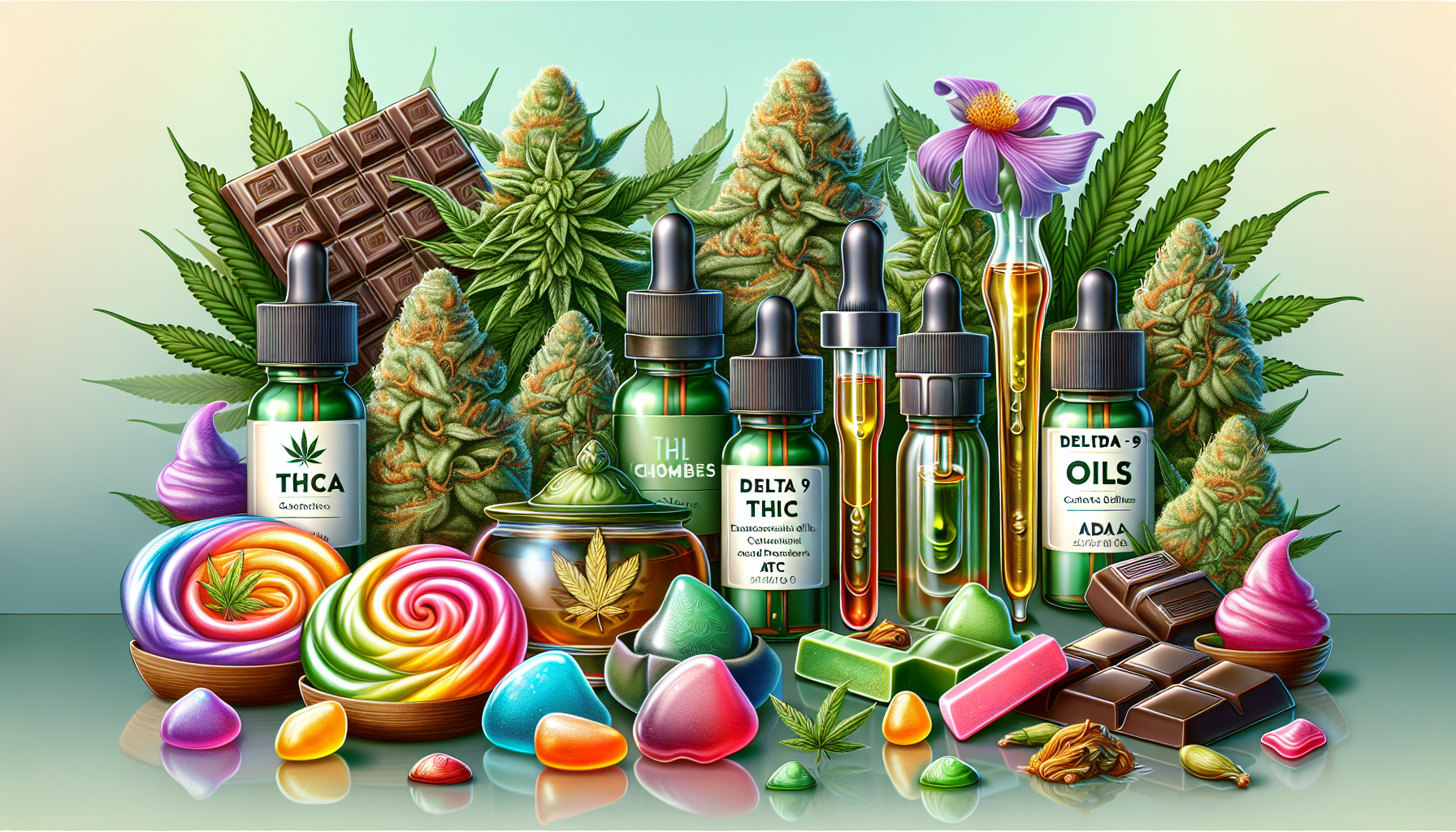
THCA and Delta 9 THC differ in chemical structure, effects, and user preferences. THCA includes a carboxyl group that prevents it from being psychoactive, while Delta 9 THC lacks this group, allowing it to produce intoxicating effects. These differences make THCA appealing for those seeking therapeutic benefits without the high, whereas Delta 9 THC is sought after for its euphoric effects.
The unique characteristics of THCA and Delta 9 THC cater to different user preferences. THCA is favored for its non-psychoactive nature, ideal for therapeutic use without intoxication. In contrast, Delta 9 THC is popular among recreational consumers for its psychoactive properties.
These differences are essential for users making informed cannabis product choices.
Non-Psychoactive vs. Psychoactive Nature
Delta 9 THC causes psychoactive effects, making it responsible for the ‘high’ sensation associated with cannabis use. This is due to its ability to bind to brain receptors, producing euphoria and altered sensory perception. In contrast, THCA is non-psychoactive, meaning it does not induce euphoria or a high.
For users seeking therapeutic benefits without intoxication, THCA is often preferred. Its non-psychoactive nature makes it suitable for medical applications where patients need relief without the psychoactive effects that Delta 9 THC provides.
This distinction is vital for those who use cannabis for medicinal purposes, ensuring they receive the desired benefits without the potential drawbacks of intoxication.
Consumption Methods
Before:
THCA can be consumed in various ways, catering to different preferences and needs. Common consumption methods include juicing raw cannabis, using tinctures, and taking capsules. Juicing raw cannabis preserves THCA, allowing consumers to enjoy its benefits without converting it to Delta 9 THC. THCA tinctures, liquid extracts from raw cannabis, are consumed sublingually for fast absorption. Capsules offer precise dosing and are discreet, making them an excellent option for beginners.
After:
THCA can be consumed in various ways, catering to different preferences and needs. Common consumption methods include:
-
Juicing raw cannabis, which preserves THCA and allows consumers to enjoy its benefits without converting it to Delta 9 THC
-
Using tinctures, which are liquid extracts from raw cannabis consumed sublingually for fast absorption
-
Taking capsules, which offer precise dosing and are discreet, making them an excellent option for beginners
Topical applications like balms and creams are popular, providing localized relief without psychoactive effects. For those seeking more intense effects, THCA diamond crystals can be dabbed or vaporized. Additionally, transdermal patches offer controlled dosage without heating, ensuring no conversion to Delta 9 THC and allowing for quicker effects.
Diverse consumption methods make THCA accessible and versatile for different therapeutic needs.
Legal Status
The legal status of THCA and Delta 9 THC varies significantly due to their psychoactive properties. THCA is often viewed as legal because it is non-psychoactive, resulting in less strict regulation compared to Delta 9 THC. This makes THCA products more widely available and accessible in many regions.
In contrast, Delta 9 THC is classified as a controlled substance federally as a Schedule I substance, leading to strict regulations regarding controlled substances and the Controlled Substances Act, impacting availability and regulation across states. The 2018 Farm Bill significantly shaped the legal landscape for both compounds, impacting availability and regulation.
Consumers must be aware of local laws regarding THCA and Delta 9 THC to ensure compliance and make informed decisions about their use.
Health Benefits and Risks
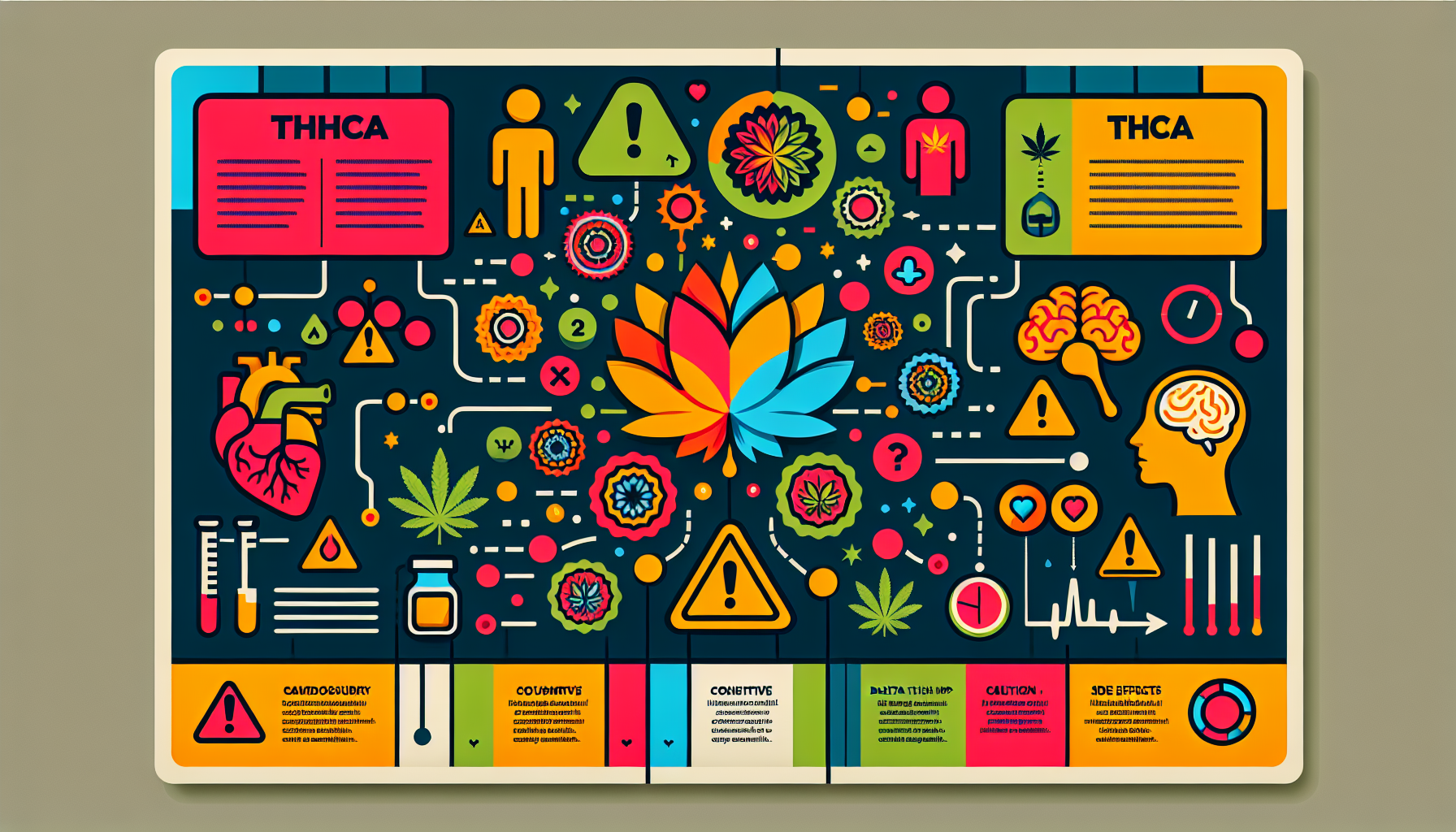
Knowing the health benefits and risks of THCA and Delta 9 THC is crucial for informed use. Both compounds offer potential therapeutic benefits but come with their own sets of risks and side effects. Delta 9 THC, for example, is researched for treating conditions like multiple sclerosis and nerve pain. It is known for producing relaxation, euphoria, heightened sensory perception, and effective pain management.
On the other hand, THCA shows promise in early research for its anti-inflammatory and neuroprotective properties. However, more studies are needed to fully understand and validate its therapeutic potential. Users must weigh these benefits against potential health risks, like adverse effects during pregnancy or dependency risk with long-term use.
Potential Therapeutic Properties of THCA
The absence of psychoactive effects in THCA makes it appealing for patients seeking relief without intoxication. THCA’s non-psychoactive nature makes it attractive for those needing therapeutic effects without THC’s intoxicating impacts. Research suggests THCA has anti-inflammatory and neuroprotective properties, benefiting conditions like arthritis and neurodegenerative diseases.
Currently, scientists are exploring the medicinal effects of THCA. They are also examining its strength in addressing health issues. These potential therapeutic properties highlight the importance of ongoing research and the need for more comprehensive studies.
THCA is generally considered safe with few known side effects, making it a viable alternative for therapeutic use.
Health Benefits of Delta 9 THC
Delta 9 THC interacts with the body’s endocannabinoid system, which plays a crucial role in regulating various physiological processes. It binds to cannabinoid receptors, causing euphoria, altered perception, and increased appetite, contributing to its pain relief and mood enhancement effects. These properties make Delta 9 THC effective in managing chronic pain, nausea, and certain psychological disorders.
Patients often report significant symptom relief with Delta 9 THC, supported by FDA-approved medications and ongoing research. Its ability to produce psychoactive effects and therapeutic benefits makes Delta 9 THC a valuable compound in both medical and recreational contexts.
Potential Risks and Side Effects
Higher doses of Delta 9 THC can lead to increased anxiety or paranoia, along with impaired cognitive functions such as memory problems. Long-term use of Delta 9 THC may result in dependence and potential aggravation of mental health issues. THCA, while generally considered safe, can cause side effects such as dizziness, nausea, changes in appetite, and increased anxiety.
The effects of Delta 9 THC can vary based on factors such as tolerance, dosage, and consumption method, and it can remain in the body for an extended period. Knowing these potential risks and side effects is essential for informed cannabis use.
Market Potential and Consumer Preferences
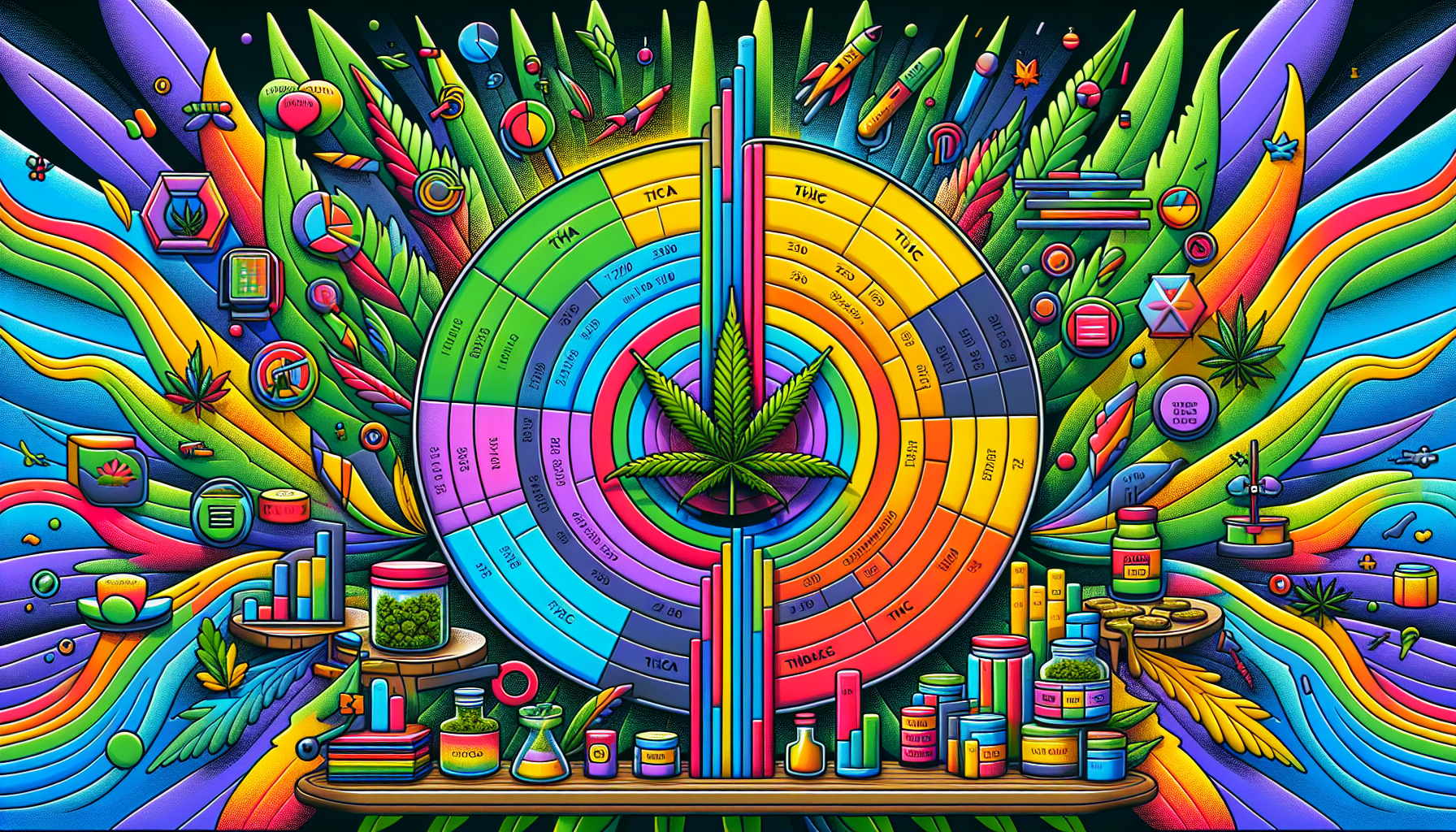
THCA and Delta 9 THC markets are expanding due to increasing recognition of their varied uses and benefits. Hemp-derived THC products are increasingly recognized as viable alternatives to traditional cannabis, drawing in a broader consumer base. The established popularity of Delta 9 THC among recreational and medicinal consumers ensures the ongoing demand for these products.
Consumer preferences shape the market, with specific products gaining popularity based on effects and benefits. Understanding these market dynamics can help users and industry professionals navigate the evolving cannabis landscape effectively.
THCA Products
THCA is more widely used for medicinal purposes, attracting health-conscious consumers. BudPop offers a variety of THCA products that have received positive feedback, including gummies and THCA diamond crystals. Diamond CBD also provides THCA products such as Candy Gelato and various flower strains. These products cater to different preferences, from those seeking discreet consumption to those looking for more intense effects.
The cannabis market offers various forms of THCA products, including flowers, concentrates, edibles, tinctures, and topicals. Extraction techniques are crucial for isolating THCA, contributing to market availability. Some consumers prefer THCA diamond crystals due to their potential for more intense effects. This diversity in product offerings ensures that there is something for everyone in the THCA market.
Delta 9 THC Products
Vape cartridges, edibles, and topicals are popular Delta 9 THC products among recreational users. These products offer various ways to enjoy the psychoactive effects of Delta 9 THC, each with different onset times and intensities. The Delta 9 THC market sees new products and applications in both medicinal and recreational uses.
The growing demand for Delta 9 THC products is driven by their established popularity and the evolving cannabis industry. As new innovations continue to emerge, the market potential for Delta 9 THC remains robust, catering to both seasoned cannabis enthusiasts and new users.
Safety Considerations and Research
Users should consider personal health conditions and medication interactions when consuming THCA or Delta 9 THC. Education and responsible consumption help minimize risks and maximize cannabinoid benefits. Being informed about the safety profile of THCA and the potential side effects of Delta 9 THC is crucial.
Consulting healthcare professionals and following recommended dosages can help minimize cannabinoid use risks. Ongoing research aims to unravel the therapeutic potential and safety profiles of both THCA and Delta 9 THC, providing a promising outlook for the future of cannabis products.
Research on THCA
Current studies explore THCA’s potential therapeutic applications, including anti-inflammatory and neuroprotective properties. However, many areas of THCA research still lack comprehensive understanding, highlighting the need for further investigation. Addressing these gaps in knowledge could lead to significant advancements in the therapeutic use of THCA.
THCA’s potential benefits are vast, but further research is necessary to fully validate its medicinal properties. Ongoing studies could expand THCA’s therapeutic landscape, offering new possibilities for non-psychoactive relief.
Research on Delta 9 THC
Research has established a well-documented safety profile for Delta 9 THC when used appropriately. This compound has been extensively studied for its psychoactive properties and therapeutic benefits, providing a robust foundation for its use in medical and recreational contexts.
Responsible use under healthcare guidance minimizes potential risks and ensures safe Delta 9 THC consumption. As the cannabis industry continues to evolve, ongoing research will likely uncover new applications and refine our understanding of this potent compound.
Potential for addiction
THCA itself is non-psychoactive, but when converted to THC, it can contribute to addictive behaviors similar to those associated with marijuana. Regular THC use, derived from THCA, may lead to long-term side effects and dependency risk. Individuals who frequently consume high doses of THC are at a greater risk of developing mental health issues like anxiety and depression.
There are no FDA-approved medications specifically designed to treat marijuana use disorder, highlighting the challenges in managing addiction related to THC. Users must be aware of these risks and take steps to ensure responsible consumption, especially when using products that convert THCA to THC.
Summary
In summary, understanding the differences between THCA and Delta 9 THC is crucial for making informed decisions about cannabis use. THCA offers potential therapeutic benefits without the intoxicating effects, making it appealing for medicinal purposes. In contrast, Delta 9 THC provides psychoactive effects that are popular in both medical and recreational contexts.
Both compounds have unique properties and applications, catering to different user preferences and needs. As research continues, the therapeutic potential of these cannabinoids will become clearer, offering new possibilities for patients and recreational consumers alike. By staying informed and responsible, users can maximize the benefits and minimize the risks associated with these powerful cannabis compounds.
Seeking Treatment? We Can Help!
We work with PPO Out of Network Health Insurance Policies
If you or a loved one are struggling with mental health challenges or substance abuse, reach out to Mountain Sky Recovery today. Our team of compassionate professionals is here to support your journey towards lasting well-being. Give us a call at 951-877-5868.
FAQs For THCA Vs Delta 9
What is the main difference between THCA and Delta 9 THC?
The main difference is that THCA is non-psychoactive and requires decarboxylation to produce effects, while Delta 9 THC is the active compound that causes the psychoactive ‘high’.
How does THCA convert to Delta 9 THC?
THCA converts to Delta 9 THC through decarboxylation, a process that occurs when cannabis is heated, such as during smoking or cooking. This transformation is essential for activating the psychoactive properties of THC.
What are the therapeutic benefits of THCA?
THCA offers potential therapeutic benefits such as anti-inflammatory and neuroprotective properties, making it promising for treating conditions like arthritis and neurodegenerative diseases.
What are the potential risks of using Delta 9 THC?
Using Delta 9 THC can lead to increased anxiety, impaired cognitive functions, and potential dependency with prolonged use. It’s important to weigh these risks before considering its use.




